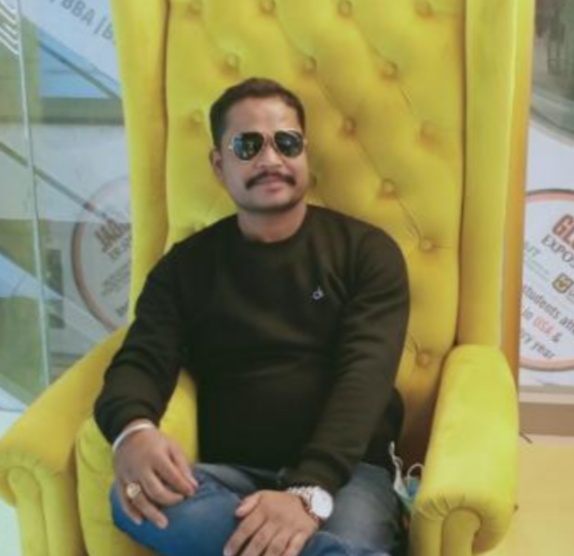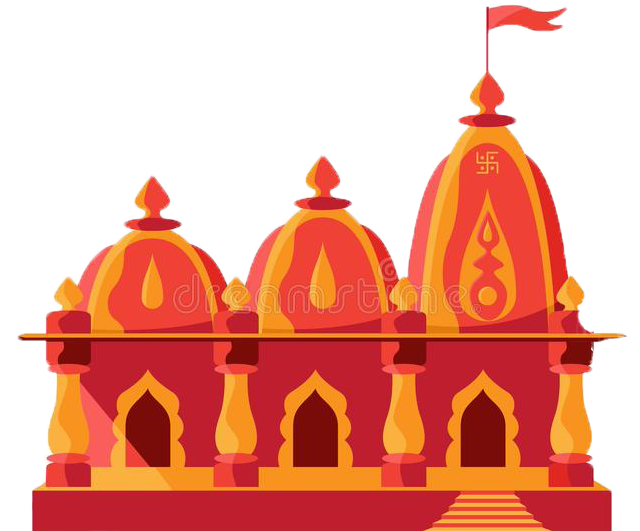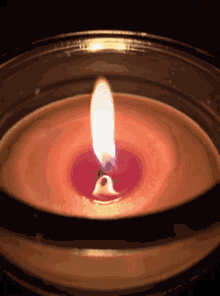This Temple Website sponsored by Mr. Anoop Singh, HSFC, Dwarka, New Delhi-110075.
Phone Numbers- 70117104088, 9136362391

Dress Code
No restrictions for any dress.
Entry Restrictions
No Restrictions, Persons of all faiths allowed.
Parking Facilities
Bike,Car,Bus and Electronic Vehicle parkings are available near the Temple.
Security and Surveillance
Volunteer yourself to be a part of Temple Security and Surveillance to ward off any Evil Attempts of Adharmik Forces.
Introduction and History in Brief
A unique septagonal spring dedicated to Goddess Kheer Bhawani flows from west(sheer or head section) to the east(padh or feet). The holy spring is known to change its colour with various hues of red, pink, orange, green, blue, white, etc. which was noted by Abul Fazal and Swami Vivekananda. A black shade of the spring water is believed to be inauspicious.
Kheer Bhawani or Ksheer Bhawani is a temple dedicated to the Goddess Kheer Bhavani (Maharagnya Bhagwati) constructed over a sacred spring. The worship of Kheer Bhawani is universal among the Hindus of Kashmir, most of them who worship her as their protective patron deity (Kuladevi). The temple is situated at a distance of 14 miles east of Srinagar,Jammu and Kashmir, India, near the village of Tulmul. The term kheer refers to rice pudding that is offered in the spring to propitiate the Goddess, which became part of the name of the temple. As is the custom with Hindu deities, she has many names: Maharagya Devi, Ragnya Devi, Rajni, Ragnya Bhagwati, and so on.
It is the most important temple for the Kashmiri Hindus in Kashmir, known as the Kashmiri Pandits, most of them who consider. Around the temple is an area covered with smooth and beautiful stones. In it are large, old-growth chinar trees beneath which the pilgrims sit or sleep on mats of grass. While most of the colours do not have any particular significance, the colour of the spring water changes occasionally. When black or darkish, it is believed to be an indication of inauspicious times for Kashmir. In 1886, Walter Lawrence, the-then British settlement commissioner for land, during his visit to the spring, reported the water of the spring to have a violet tinge.
Maharagya was pleased with the devotion of Ravana and appeared before him and Ravana got an image of the Goddess installed in Sri Lanka. However, the Goddess became displeased with the vicious and licentious life of Ravana and so didn’t want to stay in Sri Lanka. Therefore, she is believed to have instructed Lord Hanuman to get the image from Sri Lanka and install it at the holy spot of Tulmul. Though Ragniya is a Rupa of Durga, this one is a Vaishnav Rupa in Kashmir. Ragniya is also known as Tripurasundari, while in (Sri) Lanka, the Mother Goddess was called Shayama. Sita too, is believed to have been an incarnation of Ragniya. Ragniya Mahatmya has it that those who meditate on Panch Dashi Mantra during Navreh, Mother Ragniya grants their wish.
It is said that the night during which Mother Goddess came from (Sri) Lanka to Kashmir was named Ragniya Ratri In Kashmir a number of shrines are dedicated to Mother Goddess at Tiker, Bhuvaneshvar, Manzgam (Noor-abad) Bheda, Lo-qraer-pur, Mani-gam, Rai-than and Baed-pur, but the Shrine at Tulmul is the most famous one and hence the focus of yatris. 360 springs (nagas) are said to have gathered there. Ragniya is a Sattavie form of Mother Goddess, i.e. the form of tranquility and bliss.
The mention of Kheer Bhawani is found in Kalhana’s Rajtarangini. Kalhana writes that the sacred spring of Tula Mula is situated in a marshy ground. The name of the spring is Mata Ragini Kund (pond).[1]
Maharagini is the form of Durga Bhagvati. The Hindus of Kashmir worship this spring and pilgrims from every corner of the country visit to have the darshan of the place.
In Rajatarangini, Tula Mula and the spring of Maharagnya has been considered very sacred and the Hindus of Tula Mula considered notable for their spiritual prowess. Thousands of years ago, many floods occurred in Kashmir and the sacred spring of Tula Mula was inundated under its sway and the holy place could nowhere be traced. At last, Kashmir’s Yogi Krishna Pandit Taploo of Bohri Kadal, Srinagar had a dream in which the Goddess appeared to him and directed that she would swim in the form of a snake at the proper place and that he should stick large poles to demarcate the holy spot in the marsh land. Subsequently, when the water subsided there the holy spot was discovered. This event happened during the Samvat 4041 (Hindu lunar date).Sh. Krishen Joo taploo possessed some valuable manuscripts too like Bhrigu Samhita which was in late Eighties taken away from his family members and now its fate is not known.He even had a huge Shiv Ling which at present is at Bohri Kadal temple. An annual Hawan used to take place coinciding with the discovery of Holy pond of Ksheer Bhawani at his residence before forced migration of Kashmiri Pandits.
In the past, with incessant offering of milk and sugar candy in the spring by pilgrims, a thick layer of offerings had accumulated at its base. When it was cleared, the ruins of an old temple and shrine slabs engraved with figures were discovered. Here many images were also found but nobody rebuilt the temple till the Samvat 1969 (Hindu lunar date) when Maharaja Pratap Singh who was the disciple of the Goddess, got a temple of marble made in the midst of the spring which shines like a pearl in a shell. The marble temple was completed in 1920s. Some people are of the opinion that there was a mulberry tree near holy spot of Kheer Bhawani which, in local language, is called tul mul. But tul mul is also derived from the Sanskrit word atulya mulya meaning great value. It is believed that Ravana, after his worship of the Goddess, offered her kheer (rice pudding), which she accepted and since then it is called Kheer Bhawani.
Important News Related to Temple
Temple Photos
Videos from YouTube
Presiding Deity
Maa Kheer Bhawani (Maa Sherawali)🙏
Maa Kheer Bhawani(Sherawali) with Weapons
Be A True Devotee
Worship your Isht in your tradition .
But a passive worship is a total waste of your time and energy .
For True Worship ,a devotee MUST master the use of weapons the Deity bears.
The weapons of Maa Kheer bhawani are
Bow and arrow, sword, mace, discus, conch shell.
Remember, for a Sanatani, Shastra (Weapon) and Shaastra (Holy Book) go together 🙏
Always carry the weapons of respactive deity like Wand,Gada,Sword and Trishula.
How to use? Where available? Legal issues?
Email us at <mandirdarshan.org@gmail.com>
Timing
6AM TO 9PM
All days in week but the timings can be differ on the festival days!
Aarti Timing
Details awaited/Solicited.
Basic Facilities
Drinking Water, CCTV Security, Prasad, Puja Samagri, Satsang Hall, Shoe Store, Wash Rooms.
Activities
Details awaited/Solicited.
Festivals
Durga Puja
Navratris
Ram Navami
Mahashivratri
Durga Puja
Diwali
Holi etc..
Famous Temples Nearby
Mamal Temple
Gaurishanker Temple
Shankaracharya temple, Srinagar etc..
Near by Shops & Markets
👉 Famous for Shopping in Pahalgam.
Nearby Dharamshalas
Details awaited/Solicited.
Hotels near Temple
👉Click HERE to look upon hotels nearby near Temple.
Restaurants near Temple
👉Click HERE & HERE look upon famous restaurants near Temple.
Nearby Hospitals
👉Click MORE HOSPITALS to look upon nearby Hospitals.
Concerned Police Stations
Police Station – Pahalgam
Address: Chandanwari Road Pahalgam Jammu and Kashmir, 192126
Managment Commity
Details awaited/Solicited.
Miscellaneous information
Details awaited/Solicited.
Legal information
The temple is situated on legal site taking by Govt,(ASI) & Mandir Community, there is no legal obligation on Temple Property or Temple Schedule, Criteria,Rules etc..
Facilities to hold Functions
Details awaited/Solicited.
Library
Details awaited/Solicited.
Akharas
Details awaited/Solicited.
Mehants, Pujaris, Archakas and Sewayats
Name:
Photo:
Phone Number:
Further Details:
Details to be updated.
Gau Sewa, Birds and otheranimals Sewa
Initiattives like Pashu Sewa, Pakshi Sewa, Langar Sewa, Vedic Pathshalas etc Plannings in process.
Langar Sewa
Details awaited/Solicited.
Gurukul/Vedic Pathshalas
Details awaited/Solicited.
Mitra Mandal Link for Advice/Guidance*
Google Forms will be available shortly to become member of this group.
Modes of Travel
- By Air
Srinagar airport is the closest domestic airport to Pahalgam which is approximately 95 kilometres away. The Srinagar airport is well-connected to other major cities like New Delhi, Jammu, Leh, Mumbai and Chandigarh. Some of the popular carriers are Spice Jet, IndiGo, Air India and Go Air. Once you reach at the airport, you can hire a taxi or a cab which will take you to the town.
- By Train
There are no train stations in Pahalgam. The nearest railhead is Jammu Tawi, which is at a distance of 157 kilometres and is well-linked with most of the Indian cities. Some of the trains that ply regularly from the Jammu railway station are Uttar Sampark Rajdhani, Jammu Rajdhani and Jhelum Express. From here, you would need a vehicle which can drive you to Pahalgam via Srinagar. You can either hire a private cab or opt for a shared taxi which is an economical option and preferred by most of the travellers.
- By Bus
Pahalgam is well-connected with neighbouring cities of Srinagar and Jammu. Regular bus services are available from Srinagar and Anantnag. You can choose from the routine state-run buses or a special luxurious coach by any private vendor.
Visitors’ views about the Temple
Address for Visiting and Donation Purpose
Kheer Bhawani Ragnya Mata Temple, Lokutpor
1, Lokutpor, Banghidar, Anantnag, Jammu and Kashmir 192125
The Data mentioned above and links are taken from Google, YouTube, TripAdvisor, Justdial, Wikipedia, Google Maps etc,. which is already in public domain. All such informations are only to facilitate the devotees to have proper darshan and there is no intentions of making any financial benefits out of them.
This website developed and maintained by :
Mc Luhan Madhyam LLP
176, Pocket-2, Sector-19, Dwarka, New Delhi-110075.
Phone Number: 01145118299, 9899802299



